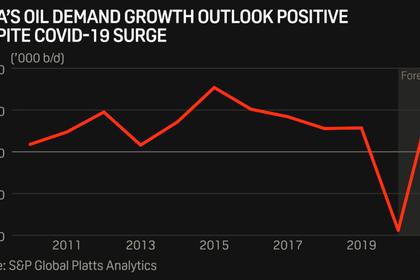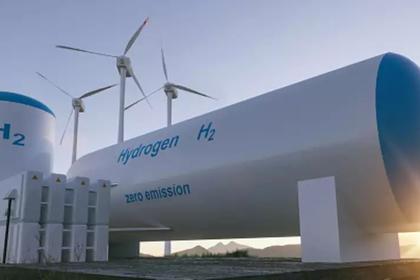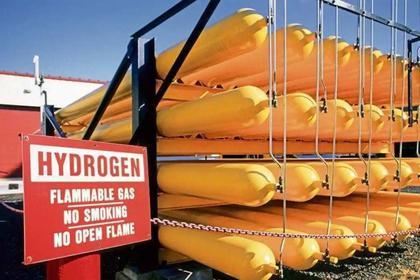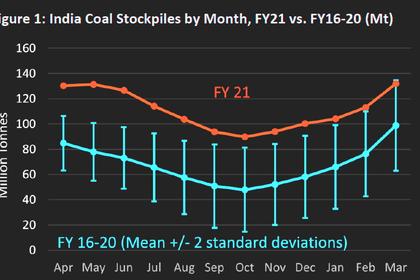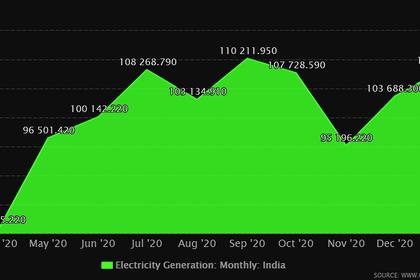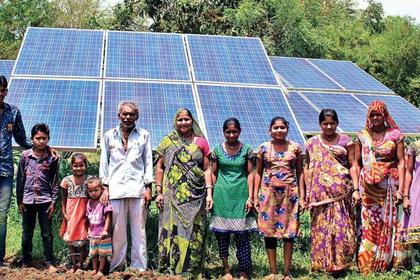
INDIA'S ENERGY DEMAND UPDOWN
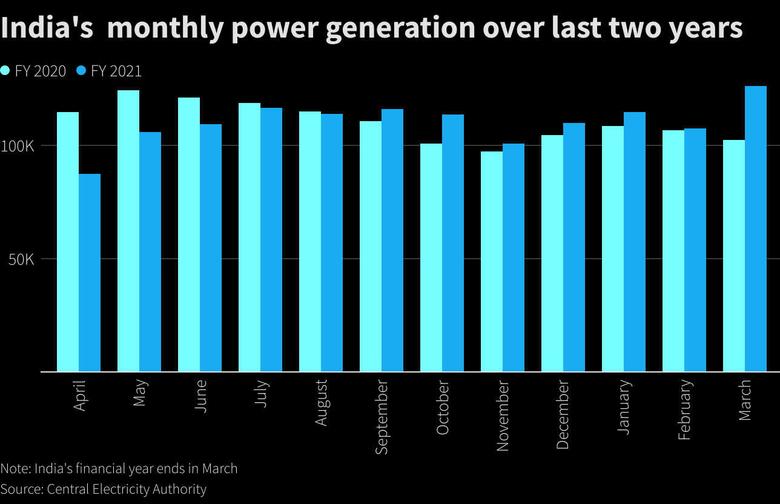
By Rajat Kapoor Managing Director - Energy, and Oil & Gas AWR Lloyd India Limited
ENERGYCENTRAL - Apr 23, 2021 - Power demand in the country, despite being severely hit by the pandemic which brought about strict Covid induced lockdowns that severely impacted industrial and commercial activity, did not fall substantially for the FY 21 (Apr 20 – Marc 21), and was down only 1% Y-o-Y from 1282 Billion Units (BU) to 1270 BU in FT 21(see chart).
This is in severe contrast to crude consumption which fell 10.54% to 4.40 mn bopd from 4.91 mn bppd in 2019, as the demand for most petroleum products, with the exception of LPG, contracted last year.
Power demand bounced back sharply in 2H FY21;
Power demand in the country was heavily impacted during the Q1FY21 lockdown (bringing all economic activity to a standstill), falling 15.5% Y-o-Y during Q1FY21 and 7.8% Y-o-Y during 1HFY21.
However, there has been a sharp uptick since the beginning of the unlocking phase and saw a 6.7% Y-o-Y surge in Q3FY21. This spurt in demand is led by improvement in economic activity and higher domestic usage of electricity, driven by enhanced connectivity and lesser load shedding. The overall fall in demand during FY21 has been capped at only ~1% yoy,
Power demand is expected to improve sharply in FY22 and witness a 12% growth, primarily led by economic recovery across the industrial and the commercial (office use) segments. This ties in with the general Indian economic growth, where GDP is expected to increase by 11% next fiscal. As per the CEA, peak power demand already reached a new record of 190GW in Jan 2021.
From FY23E, we expect the country’s base-case power demand to grow at a CAGR of 4.5% over FY23 -FY25
-----
This thought leadership article was originally shared with Energy Central's Generation Professionals Group. The communities are a place where professionals in the power industry can share, learn and connect in a collaborative environment. Join the Generation Professionals Community today and learn from others who work in the industry.
-----
Earlier:
